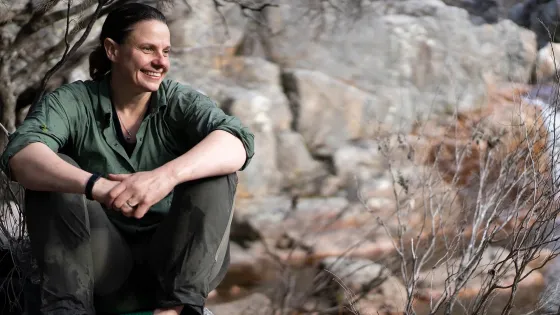Past events
This page lists RSB past events.

Discover the capabilities of the new Precision Fermentation Facility that has been established at RSB, including an overview of the equipment, its capabilities and potential applications.

Rust fungi are a major cause of cereal yield losses worldwide requiring frequent fungicide applications in case crop resistance is overcome by new pathogen variants.

Several iconic, sclerophyllous, endemic lineages among Gondwanan families (e.g. Proteaceae, Myrtaceae, Goodeniaceae, and Restionaceae) are characteristic features of the Australian flora.

Professor Craig Moritz, Director of the Research School of Biology
Three Plant Science PhD students giving ~20 min presentations as part of their Thesis Proposal Review milestone.

Kate Grarock is an Environmental Scientist, Hiker, Filmmaker, and Keynote Speaker. She loves inspiring people to be as passionate about the environment as she is.

Birds are some of the most colourful organisms on Earth - no wonder they are one of the most studied models in the evolutionary ecology of colour signalling.

Cytosolic Ca2+ signals and changes in pH are universal signaling elements that couple a wide range of stimuli to their characteristic responses in plants. Despite decades of intensive research, it is still poorly understood.

Plants rely on their sophisticated innate immune system to protect themselves from surrounding disease-causing pathogens.
